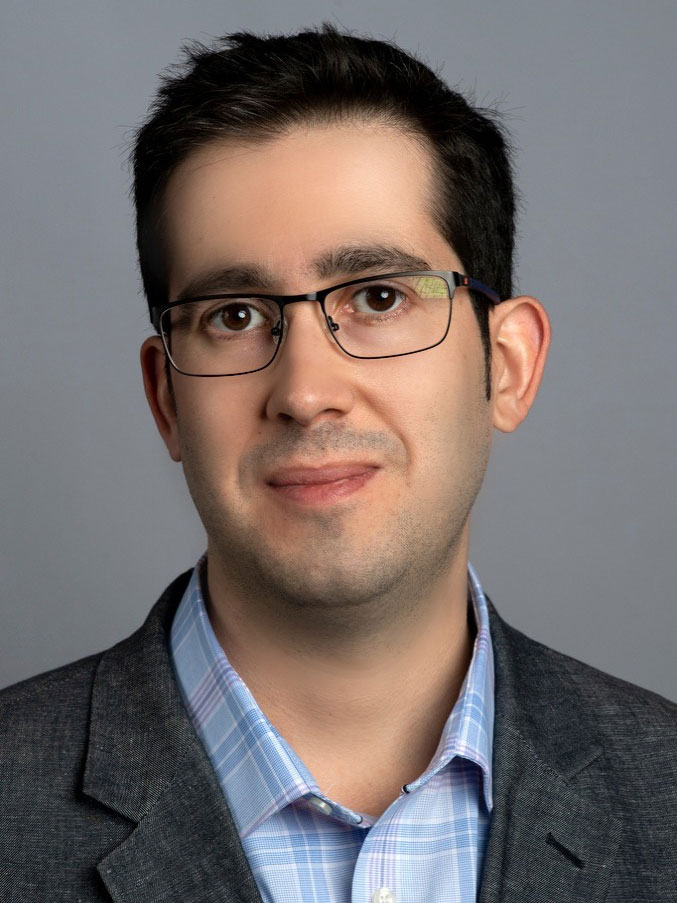Josep Miquel Jornet
Associate Dean of Research,
Office of the Dean
COE Distinguished Professor,
Electrical and Computer Engineering
Associate Director,
Institute for the Wireless Internet of Things
Office
- 412 ISEC
- (617) 373-5719
Lab
- EXP 740
Research Focus
Terahertz communications for 6G systems, wireless nano-bio-communication networks, Internet of Nano-Things
About
Josep Miquel Jornet is a Professor in the Department of Electrical and Computer Engineering (ECE), the Associate Dean of Research in the College of Engineering, the Associate Director of the Institute for the Wireless Internet of Things (WIoT), and the director of the Ultrabroadband Nanonetworking (UN) Laboratory at Northeastern University (NU). Betweem July 2024 and December 2024, he served as the interim chair of ECE.
He was born in Tarragona, Spain, in 1984 and grew up between the city and the village of Ascó. He received an Engineering Degree in Telecommunication Engineering and a Master of Science in Information and Communication Technologies from the Barcelona School of Telecommunications Engineering (ETSETB), Universitat Politècnica de Catalunya, Spain, in 2008. From September 2007 to December 2008, he was a visiting researcher at the Massachusetts Institute of Technology, Cambridge, under the MIT Sea Grant program. He received his Ph.D. degree in Electrical and Computer Engineering from the Georgia Institute of Technology, Atlanta, GA, in August 2013, under the guidance of Professor Ian F. Akyildiz. Between August 2013 and August 2019, he was a faculty in the Department of Electrical Engineering at the University at Buffalo (UB), The State University of New York. He joined NU in 2019 as an Associate Professor and was promoted to Full Professor in 2023.
His research interests are in terahertz communication networks, wireless nano-bio-communication networks, and the Internet of Nano-Things. In these areas, he has co-authored more than 300 peer-reviewed scientific publications, including one book, and has been granted five US patents. His work has received over 20,000 citations (h-index of 65 as of April 2025). His work has been funded by multiple grants from different U.S. federal agencies, including the National Science Foundation, the Air Force Research Laboratory (AFRL), the Air Force Office of Scientific Research (AFOSR), and the Office of Naval Research (ONR) as well as industry, totaling over $30M in slightly o ten years. He received the National Science Foundation CAREER Award in 2019, several other awards from IEEE, ACM, UB, and NU, and eleven best paper and demo awards. He is a Fellow of the IEEE, Class of 2024.
Since July 2016, he has been the Editor-in-Chief of Elsevier’s Nano Communication Networks Journal. He has been an Associate Editor in IEEE Transactions on Communications since 2022 and for Scientific Reports since 2023. He also serves on the Steering Committee of the ACM Conference Series on Nano Computing and Communication since 2016.
Besides research and service, he is committed to education and workforce development. Since 2022, he has been the co-director of the two new Master of Science (MS) degrees in the Internet of Things and Wireless and Network Engineering by the WIoT and ECE at Northeastern University. He has introduced multiple pioneering and innovative courses, including the first course on Nanonetworking (2014-2019), Terahertz Communications for 6G (since 2020), and an Experimental Approach to Wireless Communications (since 2021). Outside Northeastern University, he has participated in many panels, delivered multiple short courses and tutorials, served as a keynote speaker in multiple venues, and is currently an IEEE Communications Society Distinguished Lecturer.
Education
- Ph.D., Electrical and Computer Engineering, Georgia Institute of Technology, Atlanta, GA, USA 2013
- M.S., Information & Communication Technologies, Universitat Politecnica de Catalunya, Spain, 2008
- B.S., Telecommunications Engineering, Universitat Politecnica de Catalunya, Spain, 2008
Honors & Awards
- Research and Teaching Awards
- Distinguished Faculty Award, 2026
- Springer Nature Editor of Distinction Award, Scientific Reports, 2025.
- Excellence in Mentoring Award, Northeastern University, January 2025.
- IEEE Fellow, for contributions in terahertz communication and nanonetworking, Class of 2024.
- Søren Buus Outstanding Research Award, Northeastern University, February 2023.
- IEEE Wireless Communications Technical Committee Outstanding Young Researcher Award for his pioneering contributions to the field of terahertz communications, November 2022.
- IEEE Radio Communications Committee Early Achievement Award for his contribution to terahertz communications, May 2022.
- Martin W. Essigmann Excellence in Teaching Award, Northeastern University, April 2022.
- IEEE Communications Society Distinguished Lecturer, Class of 2022-2023.
- Distinguished TPC Member Award, IEEE International Conference on Computer Communications (INFOCOM) in 2021, 2018, 2017 and 2016.
- IEEE Senior Member Elevation, November 2020.
- Faculty Fellow, College of Engineering, Northeastern University, since Fall 2019.
- UB Exceptional Scholar – Sustained Achievement Award for his contributions to terahertz communications and wireless nano-bio-communication networks, 2019.
- NSF CAREER Award, March 2019.
- SEAS Early Career Teacher of the Year Award, December 2018.
- UB Exceptional Scholar – Young Investigator Award for his contributions to terahertz communications, 2018.
- SEAS Early Career Researcher of the Year Award for seminal and high-impact contributions to developing novel communication networks, including terahertz-band communication systems, implantable and wearable medical device technology, and the Internet of Things, December 2017.
- ACM NanoCom Outstanding Milestone Award for his pioneering contributions to the field of nano-device technology and communication techniques for nanonetworks in the terahertz spectrum, received at the 4th ACM International Conference on Nanoscale Computing and Communication (NanoCom) 2017, Washington, DC, September 2017.
- IEEE ComSoc Young Professional Best Innovation Award for his innovative application of nano-biosensor networks to smart health monitoring and diagnosis systems received at IEEE ICC 2017, Paris, May 2017.
- BWN Lab 2010 Researcher of the Year Award, for his outstanding research achievements throughout the year.
- Fundación Caja Madrid Fellowship, awarded to outstanding graduate students from Spain to pursue graduate studies abroad, with total funding support for the 2011 and 2012 academic years. This fellowship is given personally by the Prince and the Princess of Spain.
- Excellent Reviewer of 2009 of the IEEE Journal of Oceanic Engineering. [PDF]
- Colonel Oscar P. Cleaver Award, outstanding graduate student in the School of Electrical and Computer Engineering at the Georgia Institute of Technology, Spring 2009.
- “la Caixa” Fellowship, awarded to outstanding graduate students in Spain to pursue graduate studies abroad, with full funding support for the 2009 and 2010 academic years. This fellowship is given personally by the King and the Queen of Spain.
Best Paper and Demo Award
- 2025 IEEE Communications Society Best Survey Paper Award, for “Terahertz Band Communication: An Old Problem Revisited and Research Directions for the Next Decade,” which appeared in IEEE Transactions on Communications, vol. 70, no. 6, pp. 4250-4285, June 2022.
- Best Paper Award for “Thermal and SAR-Based Limits for Human Skin Exposed to Terahertz Radiation,” presented at The 5th International Telecommunications Conference (ITC-Egypt’2025), July 2025.
- Best Paper Award – Runner Up for “Analysis of Scintillation Effects in Terahertz Band Satellite Communications for 6G and Beyond,” presented at the IEEE 22nd Consumer Communications & Networking Conference (CCNC), January 2025.
- Best Paper Award – Runner Up for “An Open, Programmable, Multi-vendor 5G O-RAN Testbed with NVIDIA ARC and OpenAirInterface,” presented at the 2nd IEEE Workshop on Next-generation Open and Programmable Radio Access Networks (NG-OPERA), May 2024.
- Best Paper Award for “Characterizing Sub-THz MIMO Channels in Practice: A Novel Channel Sounder with Absolute Time Reference,” presented at the IEEE Global Communications Conference (GLOBECOM) 2023, December 2023.
- Best Demo Award for “Adversarial Aerial Metasurfaces,” presented at the 24th International Workshop on Mobile Computing Systems and Applications (HotMobile), February 2023.
- Best Paper Award for “Joint Terahertz Communication and Atmospheric Sensing in Low Earth Orbit Satellite Networks: Physical Layer Design,” Second IEEE Workshop on Non-Terrestrial-Networks in 6G Wireless, in conjunction with the 23rd IEEE International Conference on the World of Wireless, Mobile, and Multimedia Networks (WoWMoM), June 2022.
- Best Paper Award for “Performance Analysis of a Dual Terahertz/Ka-Band Communication System for Satellite Mega-Constellations,” in the First IEEE Workshop on Non-Terrestrial-Networks in 6G Wireless, in conjunction with the 22nd IEEE International Conference on the World of Wireless, Mobile, and Multimedia Networks (WoWMoM), June 2021.
- Best Paper Award for “Uplink Multi-User Beamforming on Single RF Chain mmWave WLANs,” in the 2021 IEEE International Conference on Computer Communications (INFOCOM 2021), May 2021.
- Best Paper Award, Runner Up, for “X60: A Programmable Testbed for Wideband 60 GHz WLANs with Phased Arrays,” in the 11th ACM International Workshop on Wireless Network Testbeds, Experimental evaluation & Characterization (WiNTECH) 2017, Snowbird, Utah, October 2017.
- Best Paper Award, for “Stochastic Multipath Channel Modeling and Power Delay Profile Analysis for Terahertz-band Communication,” in the 4th ACM International Conference on Nanoscale Computing and Communication (NanoCom) 2017, Washington, DC, September 2017.
Teaching Interests
Both fundamental and advanced concepts in communications and networking, including terahertz communications, nanonetworks, and the Internet of Things.
Leadership Positions
(Within the last five years)
Professional Memberships
- Fellow, Institute of Electrical and Electronics Engineers (IEEE)
- Member, Association for Computing Machinery (ACM)
Spectrum Leadership
- Chair, IEEE Radio Communications Committee (RCC) Special Interest Group (SIG) on Terahertz Communications, since 2023 (vice chair between 2021 and 2023).
- Task Force Member, Strategic Engineering for Next-Generation Wireless Competitiveness, NSF Engineering Research Visioning Alliance, 2024.
- Member, Northeastern University liaison at the mmWave Coalition
- Member, Northeastern University liaison at the International Telecommunications Union
- Member, Spectrum, Technology, and National Roadmap Working Groups in the NextG Alliance
- Member, IEEE 802.15 Standing Committee on Terahertz Communications
Editorial Work
- Editor in Chief, Nano Communication Networks (Elsevier) Journal, since July 2016
- Associate Editor,
- IEEE Transactions on Molecular, Biological, and Multi-Scale Communications, since 2024.
- Scientific Reports, since 2023.
- IEEE Transactions on Communications, since 2022.
- Frontiers in Communications and Networks, Non-Conventional Communications and Networks, since 2020.
- Guest Editor,
- Special Issue on “Electromagnetic Nanonetworks: From On-chip Communication to Wearable and Implantable Networks,” IEEE Journal of Selected Areas in Communications, 2023-2024.
- Special Issue on “Terahertz Communications and Sensing for 6G and Beyond: How Far Are We?,” IEEE Wireless Communications Magazine, 2023-2024.
- Special Issue on “Advanced Signal Processing for Terahertz Communications in 6G and Beyond Networks,” IEEE Journal of Selected Topics in Signal Processing (J-STSP), 2022-2023.
- Special Issue on “Rising Stars in Non-Conventional Communications and Networks,” Frontiers in Communications and Networks, 2022-2023.
- Special Issue on “Terahertz Communications,” ITU Journal on Future and Evolving Technologies (ITU J-FET), 2021.
- Contributor, IEEE ComSoc Best Readings in Terahertz Communications, April 2022
Conference and Summer School Organization
- Steering Committee Member,
- General Chair,
- 104th IEEE Vehicular Technology Conference (VTC), September 2026.
- 2023 IEEE ComSoc School Series on 6G Communication and Wireless Technologies, June 2023.
- 9th ACM NanoCom, October 2022
- 5th IEEE TeraCom, May 2022
- 5th ACM mmNets 2021, October 2021
- Technical Program Committee Chair,
- Inaugural 6G Symposium (over 4,000 participants), 2020
- A Virtual Conference to Explore Modular, Open Hardware-Software Prototyping Platform for the mmWave and Sub-THz Wireless Research Community, NSF, August 25, 2020
- Track, Symposium, or Session Organizer and Chair
- Track Organizer and Chair, “Future Wireless Systems,” in the 2025 EU-US Frontiers of Engineering Symposium in Bordeaux, France, on October 20-23, 2025.
- Track Organizer and Chair, “Coexistence and Spectrum Sharing,” at the 19th European Conference on Antennas and Propagation (EuCAP), in Stockholm, Sweden, on March 30-April 4, 2025.
- Track Chair, SAC Terahertz Communications, IEEE International Conference on Communications (ICC), June 9-13, 2024.
- Track Chair, Emerging Topics in Networking, IEEE 32nd International Conference on Computer Communications and Networks (ICCCN) 2023
- Symposium Chair, Wireless Communications Symposium, IEEE International Conference on Computing, Networking and Communication (ICNC) 2023
- Track Chair, 5G and Towards 6G, IEEE Consumer Communications & Networking Conference (CCNC) 2023, 2022, 2021
- Industry Chair, 2023 Joint IEEE SPS-AESS and EURASIP Summer School on Integrated Sensing and Communication: A Multidisciplinary Perspective, June 2023.
- Local Arrangements Chair, 24th IEEE International Symposium on a World of Wireless, Mobile and Multimedia Networks (WoWMoM), June 2023.
- Workshops Chair, 17th IEEE International Conference on Mobile Ad-Hoc and Smart Systems (MASS) 2020
Professional Affiliations
- Fellow, Institute of Electrical and Electronics Engineers
- IEEE Communications Society
- Association for Computing Machinery
Research Overview
Terahertz communications for 6G systems, wireless nano-bio-communication networks, Internet of Nano-Things
Dr. Jornet directs a vibrant, diverse, and interdisciplinary laboratory with multiple Ph.D., M.Sc., and B.S. students, a third of which is composed of students from underrepresented groups in STEM. The UN Lab addresses wireless communication challenges that are of national and societal relevance, such as solving the spectrum scarcity problem by developing new wireless technologies for terahertz communications (from graphene-based nano-transceivers and nano-antennas to ultra-broadband signal processing and communication algorithms); or facilitating transformative healthcare systems (from cancer monitoring plasmonic implants to brain-machine interfaces for neural function restoration) by laying the foundations of wearable and intra-body nano-bio communication networks at optical frequencies. The UN Lab has expertise in nano-device design, modeling and analysis; signal propagation modeling and experimental characterization; and communication and networking protocol design, performance analysis, implementation, and experimental testing. For a list and more details of the current active projects in the lab, please check here.
Broader Impacts
Under the premise that anything is possible as long as it does not break the laws of physics, the UN Lab works hard towards bridging the gap between science, engineering, and society. In this direction, Dr. Jornet is at the forefront and actively involved in many activities aimed at both policy and regulation of the spectrum above 100 GHz as well as the standardization of solutions that can ensure equitable access to such resources.
In particular, aimed at transitioning terahertz communications research from theory to practice, with the support of the US National Science Foundation and the US Air Force Research Laboratory, Dr. Jornet was able to obtain first-of-a-kind US Federal Communications Commission (FCC) licenses, including the first license to operate a wireless communication system above 1 THz (File numbers 0143-EX-ST-2018 and 0516-EX-CN-2018) and, more importantly, the first license ever to allow a long-range wireless communication system (multiple kilometers) to operate over the 220-260 GHz, a frequency range which includes to protected frequency bands reserved to satellite-based passive scientific users of the spectrum (File number 0753-EX-ST-2018). This required the dynamic operation of the link according to the presence of the satellite of interest in the area of influence. Effectively, this demonstrated that different ways of sharing the spectrum beyond exclusive access are possible, which can, in fact, benefit all the users of the spectrum. For example, larger contiguous bandwidths, uninterrupted by the presence of forbidden bands, can enable ultra-high capacity wireless backhauls to provide ultra-broadband Internet access to rural areas and bridge the digital divide in the nation. At the same time, having more resources for atmospheric sensing (including radar and spectroscopy) applications, can facilitate the data collection and expedite the studies and solutions to climate change. The experiences and lessons learned from the studies conducted by Dr. Jornet were contributed as inputs and captured in the final version of the US FCC Docket 19-19 Spectrum Horizons, which introduces new mechanisms to obtain FCC licenses for experimental THz systems above 100 GHz, allocates more than 20 GHz of unlicensed spectrum for the same and, ultimately, positions the US at the forefront of spectrum policy. Other more recent contributions to the FCC include new recommended practices to ensure the protection of the scientific users of the spectrum while achieving a more cost-effective use of the 24 GHz 5G band. This has resonated very well with key spectrum players, such as AT&T.
The FCC is, however, only the first stop because to have a worldwide impact, such spectrum recommendations must be captured by the International Telecommunication Union (ITU). In 2020, led by Dr. Jornet, Northeastern University joined and became one of the only ten US-based academic members of the ITU. As a full member of the ITU, NU can submit contributions not only through specific working groups but also directly to the US Department of State. For example, in the last two years, Dr. Jornet has led contributions to US Working Party (WP) 1A – Spectrum Engineering – and US WP 7C – Remote Sensing Systems on the timely topic of spectrum coexistence above 100 GHz, which were approved by the US Department of State and discussed at the global ITU meeting in Geneva in Fall 2020. As an ITU Member, the group can influence the direction of ITU’s work, which eventually can translate into related work within the United Nations system and, thus, worldwide outreach across the 193 ITU Member States.
More recently, Dr. Jornet has also been contributing to the vision of the creation of a National Radio Dynamic Zone (NRDZ), or the playground where the future of spectrum usage can be experimentally tested while minimizing interference to existing systems. The focus of Dr. Jornet’s supplement is to specifically focus on the techniques needed to ensure coexistence and protection of the spectrum users above 100 GHz. Closely related to this, Dr. Jornet led the high-frequency aspects of Northeastern’s university application and recent approval to become an FCC Spectrum Innovation Zone. He is also the university liaison and contributor for the mmWave Coalition, an industry group aimed at removing the regulatory barriers to technologies and using frequencies between 95 GHz and 450 GHz, and a member of the Working Groups on Spectrum, Technology, and National Roadmap for 6G in the NextG Alliance, a coalition aimed at building the foundation for North American leadership in the 6G and beyond.
Besides policy, Dr. Jornet has consistently contributed to the Institute of Electrical and Electronics Engineers (IEEE) 802.15 Terahertz Interest Group. Dr. Jornet’s first contribution to the group was in 2010 when he was a junior Ph.D. student. Since that day, he has been regularly participating in the meetings and presenting the outcomes of the group (including the first standard for THz communications approved in 2017) to a larger audience, who are often not familiar with either the existence or the impact of such activities.
It is also the goal of Dr. Jornet to ensure that more people are exposed to all these organizations, procedures, and facts, starting with students. To achieve this, Dr. Jornet promotes Science, Technology, Engineering, and Mathematics (STEM) by leveraging multiple vehicles developed at Northeastern. The UN Lab contributes to the university’s Young Scholar’s Program by hosting two high-school students in the lab over the summer every year, offering them a unique opportunity for a hands-on research experience. In addition, Dr. Jornet is a regular speaker in the Pathways to STEMprogram, an after-school program geared towards high school students interested in STEM. In both cases, the goal is to show the excitement, diversity, and opportunities for real impact in the broad field of STEM. Once on campus, the UN Lab is also the mentor and research advisor for the Undergraduate Program for Leaders in Future Transformation (UPLIFT), as part of which promising first-year undergraduate students are given the opportunity to work in a research laboratory and be exposed to state of the art research. All these add to a very diverse group of master’s and Ph.D. students working on diverse aspects ranging from nanomaterials to spectrum policy, regulation, and standardization.
Last but not least, all the lessons learned through the years are now part of a semester-long graduate inter-disciplinary course on terahertz communications for 6G networks offered every year at Northeastern. In addition, aimed at disseminating this knowledge and promoting workforce development in areas that are of critical national interest, Dr. Jornet has given this course in different forms to other institutions (not only academic but also companies and national research labs) and in conferences, through keynote speeches, tutorials and short courses, panel discussions, and seminars and webinars.
Ultra-broadband Nanonetworking (UN) Laboratory
The UN Laboratory is a vibrant research team aimed at addressing wireless communication and networking challenges that are of national and societal relevance by leveraging the state of the art in nanotechnologies. Examples include solving the problem of spectrum scarcity by developing new wireless technologies for Terahertz (THz) band (0.1-10 THz) communication; facilitating transformative health monitoring and drug-delivery systems by laying the foundations of wearable and intra-body nano-biosensing networks at infrared and visible optical frequencies; and developing non-invasive low-cost communication technologies for the Internet of Things and Nano-Things (IoNT).
Selected Research Projects
- Resilient Multi-User Mobile sub-THz Networks using Near-Field Wavefronts
- – Principal Investigator, National Science Foundation
- Development towards a Community Research Platform for sub-THz Satellite Communication Networks
- – Principal Investigator, National Science Foundation
- Dynamically Adjustable Spectrum Sharing between Ground Communication Networks and Earth Exploration Satellite Systems Above 100 GHz
- – co-Principal Investigator, National Science Foundation
Research Centers and Institutes
- Institute for the Wireless Internet of Things at Northeastern University
Department Research Areas
Selected Publications
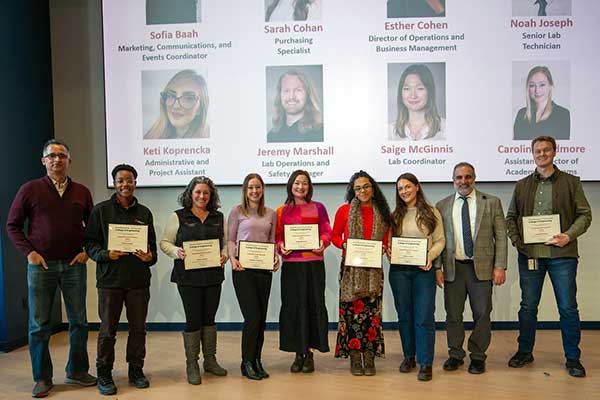
Jan 29, 2026
Faculty and Staff Awards 2026
Faculty and staff were recognized at the 28th Annual College of Engineering Faculty and Staff Awards for their exceptional service and dedication in support of students, the COE community, and the university during the 2025-2026 academic year.
Jan 23, 2026
Spring 2026 PEAK Experiences Awardees for Undergrad Research
Several COE, Bouvé, COS, DMSB, and Khoury students mentored by COE faculty are recipients of the Spring 2026 PEAK Experiences Awards from Northeastern’s Office of Undergraduate Research and Fellowships. This group of students from across the university will explore a wide variety of topics and questions from developing brain-computer interfaces, to analyzing air quiality data to inform future legislation, Socioeconomic Factors impact on twin infants, and more.
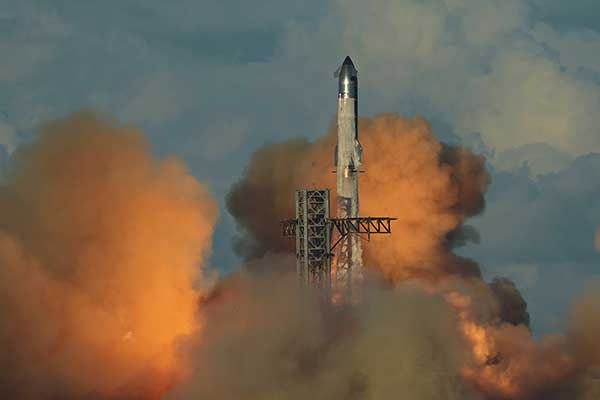
Jan 08, 2026
The Future of Space Computing and the Hurdles for Orbital AI
Tech giants like Google, SpaceX, and Blue Origin are racing to develop orbital AI data centers to bypass terrestrial energy and land constraints, though ECE Professor & Associate Dean for Research Josep Jornet warns that significant hurdles regarding power, radiation, and heat dissipation must be solved before these systems become operational.
Oct 03, 2025
Fall 2025 PEAK Experiences Awardees for Undergrad Research
Several COE, COS, and Khoury students mentored by COE faculty are recipients of the Fall 2025 PEAK Experiences Awards from Northeastern’s Office of Undergraduate Research and Fellowships.
Sep 23, 2025
2025 Stanford University Annual Assessment of Author Citations
The following COE professors are among the top scientists worldwide selected by Stanford University representing the top 2% of the most-cited scientists with single-year impact in various disciplines. The selection is based on the top 100,000 by c-score (with and without self-citations) or a percentile rank of 2% or above.
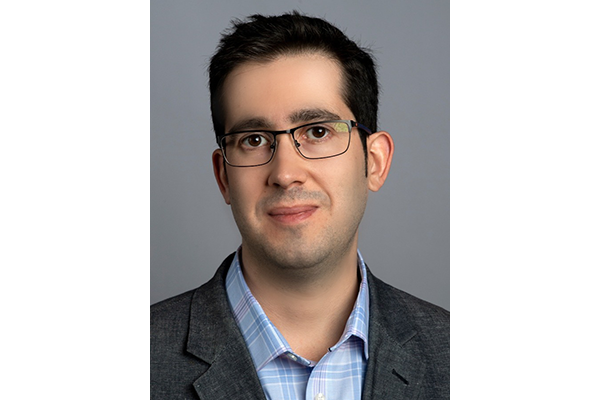
Sep 17, 2025
Patent Awarded for Ultrabroadband Wireless Communications
ECE Professor & Associate Dean for Research Josep Jornet was awarded a patent for “System and method for real-time ultrabroadband wireless communications.”
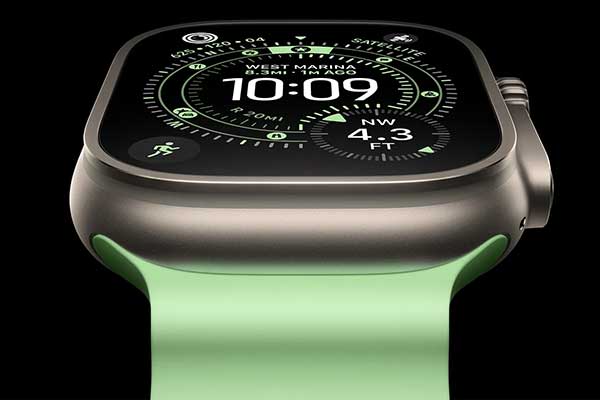
Sep 12, 2025
New Satellite Connectivity Technology Rapidly Improves Communication
ECE Professor and Associate Dean for Research Josep Jornet talks about new satellite connectivity technology found in the Apple Watch Ultra 3 and Google Pixel Watch 4, and how the technology will positively impact and rapidly improve satellite communication.
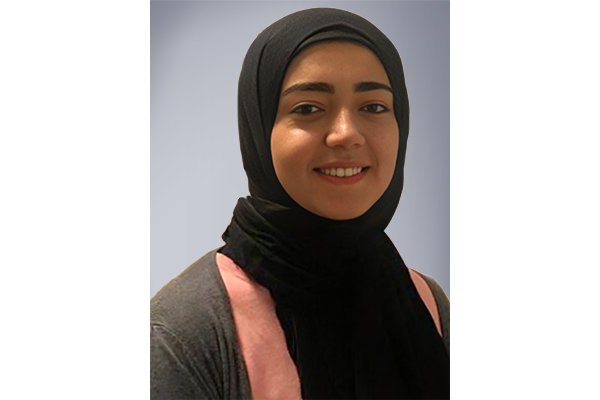
Aug 15, 2025
Electrical PhD Receives Young Scientist Award for Terahertz Brain Research
Samar Elmaadawy, PhD’25, electrical engineering, advised by ECE Professor & Associate Dean for Research Josep Jornet, received the URSI AP-RASC 2025 Young Scientist Award for her paper on “Cerebral Organoids Respond to Sub-Terahertz and Terahertz Radiation” which she will present at the 2025 URSI Asia-Pacific Radio Science Conference in Sydney, Australia, in August 2025.
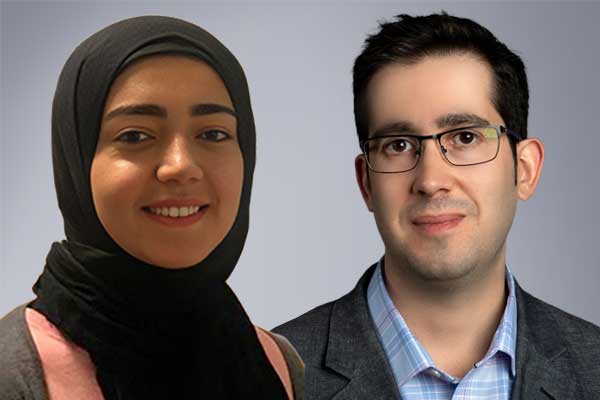
Aug 15, 2025
Best Paper Award for Terahertz Wireless Safety Research
Samar Elmaadawy, PhD’25, electrical engineering, and ECE Professor & Associate Dean for Research Josep Jornet’s paper on “Thermal and SAR-Based Limits for Human Skin Exposed to Terahertz Radiation” won the Best Paper Award at the 5th International Telecommunications Conference (ITC-Egypt’2025) in July 2025.

Aug 15, 2025
IEEE Best Paper Award for Terahertz Band Communication Research
ECE Professor & Associate Dean for Research Josep Jornet’s research on “Terahertz Band Communication: An Old Problem Revisited and Research Directions for the Next Decade” received the 2025 IEEE Communications Society Best Survey Paper Award, which will be presented at the IEEE GLOBECOM 2025 ceremony in Taipei, Taiwan, in December 2025.
